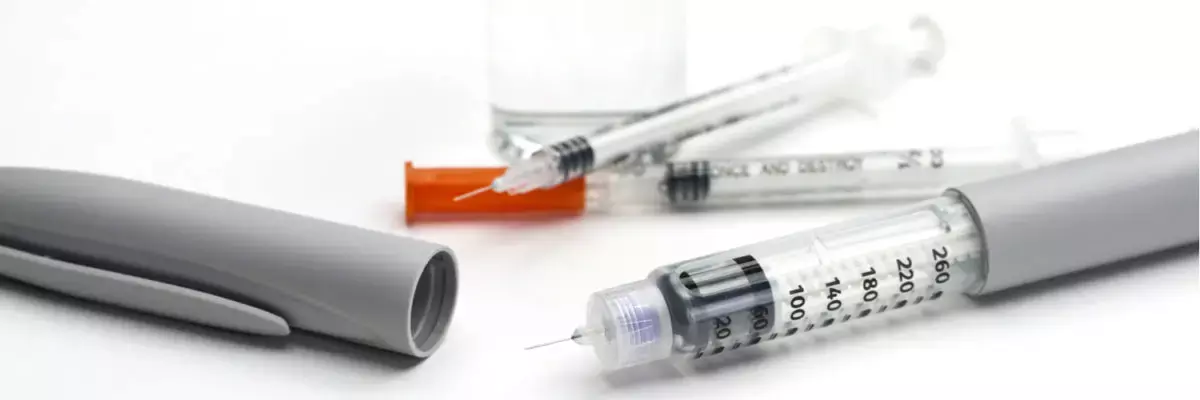- Home
- Medical news & Guidelines
- Anesthesiology
- Cardiology and CTVS
- Critical Care
- Dentistry
- Dermatology
- Diabetes and Endocrinology
- ENT
- Gastroenterology
- Medicine
- Nephrology
- Neurology
- Obstretics-Gynaecology
- Oncology
- Ophthalmology
- Orthopaedics
- Pediatrics-Neonatology
- Psychiatry
- Pulmonology
- Radiology
- Surgery
- Urology
- Laboratory Medicine
- Diet
- Nursing
- Paramedical
- Physiotherapy
- Health news
- Fact Check
- Bone Health Fact Check
- Brain Health Fact Check
- Cancer Related Fact Check
- Child Care Fact Check
- Dental and oral health fact check
- Diabetes and metabolic health fact check
- Diet and Nutrition Fact Check
- Eye and ENT Care Fact Check
- Fitness fact check
- Gut health fact check
- Heart health fact check
- Kidney health fact check
- Medical education fact check
- Men's health fact check
- Respiratory fact check
- Skin and hair care fact check
- Vaccine and Immunization fact check
- Women's health fact check
- AYUSH
- State News
- Andaman and Nicobar Islands
- Andhra Pradesh
- Arunachal Pradesh
- Assam
- Bihar
- Chandigarh
- Chattisgarh
- Dadra and Nagar Haveli
- Daman and Diu
- Delhi
- Goa
- Gujarat
- Haryana
- Himachal Pradesh
- Jammu & Kashmir
- Jharkhand
- Karnataka
- Kerala
- Ladakh
- Lakshadweep
- Madhya Pradesh
- Maharashtra
- Manipur
- Meghalaya
- Mizoram
- Nagaland
- Odisha
- Puducherry
- Punjab
- Rajasthan
- Sikkim
- Tamil Nadu
- Telangana
- Tripura
- Uttar Pradesh
- Uttrakhand
- West Bengal
- Medical Education
- Industry
Continuous subcutaneous insulin infusion halts progression of diabetic retinopathy in T1D: Study

Continuous subcutaneous insulin infusion (CSII) reduces the risk of diabetic retinopathy (DR) progression in people with type 1 diabetes compared with continued multiple daily insulin injections (MDI) therapy, reveals results from a recent study.
The results, published in the journal Diabetologia, suggests that Continuous subcutaneous insulin infusion (CSII) may be protective against progression for those with high baseline HbA1c.
Worldwide, diabetic retinpathy is one of the lead causes if blindness in diabetics and its prevalence increases with age. Previous studies have shown good blood sugar control to be associated with reduced risk of diabetic retinopathy.
Insulin is typically delivered either via continuous subcutaneous insulin infusion or by multiple daily insulin injections in order to optimize glycemic targets.
Against the above background Shareen Forbes, University of Edinburgh, Edinburgh, UK, and colleagues aimed to compare diabetic retinopathy outcomes in people with type 1 diabetes following introduction of CSII therapy with outcomes in people receiving continuing therapy with MDI in a retrospective cohort study using the Scottish Care Information.
Scottish Care Informationis a diabetes database for retinal screening outcomes and HbA1c changes in 204 adults commenced on CSII therapy between 2013 and 2016, and 211 adults eligible for CSII during the same period but who continued on MDI therapy.
The researchers plotted diabetic retinopathy progression (time to minimum one-grade worsening in diabetic retinopathy from baseline grading) for CSII and MDI cohorts using Kaplan–Meier curves. Impact of baseline HbA1c and change in HbA1c on diabetic retinopathy progression was assessed within CSII and MDI cohorts.
"Our findings showed that there was a reduced diabetic retinopathy progression in adults treated with CSII compared with MDI, particularly for those with the highest baseline HbA1c," concluded the authors.
Based on the study, the researchers found the following:
- CSII participants were significantly younger, were from less socially deprived areas, and had lower HbA1c and higher diastolic BP at baseline.
- There was a larger reduction in HbA1c at 1 year in those on CSII vs MDI (−6 mmol/mol vs −2 mmol/mol).
- Diabetic retinopathy progression occurred in a smaller proportion of adults following commencement of CSII vs continued MDI therapy over mean 2.3 year follow-up (26.5% vs 18.6%).
- High baseline HbA1c (75 mmol/mol [9%]) was associated with diabetic retinopathy progression in the MDI group but not the CSII group.
- Change in HbA1c at follow-up, irrespective of baseline glycaemic status, did not significantly affect diabetic retinopathy progression in either group.
"This provides reassurance that in patients with no or mild DR risk at baseline, there is no evidence of early DR worsening, with DR risk reduction following the introduction of CSII therapy," they wrote. "This will help facilitate patient-centered decision making regarding insulin treatment options and retinopathy screening intervals following treatment changes."
Reference:
The study titled, "Continuous subcutaneous insulin infusion therapy is associated with reduced retinopathy progression compared with multiple daily injections of insulin," is published in the journal Diabetologia.
DOI: https://link.springer.com/article/10.1007/s00125-021-05456-w
Dr Kamal Kant Kohli-MBBS, DTCD- a chest specialist with more than 30 years of practice and a flair for writing clinical articles, Dr Kamal Kant Kohli joined Medical Dialogues as a Chief Editor of Medical News. Besides writing articles, as an editor, he proofreads and verifies all the medical content published on Medical Dialogues including those coming from journals, studies,medical conferences,guidelines etc. Email: drkohli@medicaldialogues.in. Contact no. 011-43720751


